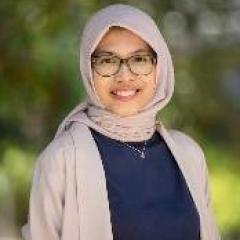The Gender of Agricultural Extension Agents: The Investigation in Java, Indonesia
Extension workers are key actors in the agenda of reaching food security and alleviating rural poverty. However, women extension workers play vital but underrepresented They may also face greater constraints than men for example in building male farmers' trusts, addressing mansplaining, and facing gender stereotypes. Men and women may work on the same field but perform different tasks and challenge different gender norms. There has been limited body of research that has attention to the rights, responsibilities and opportunities of women agricultural extension agents This research aims to engender the extension and agricultural human development system. The following research questions will guide the study: 1. To what extend do women extension workers contribute to rural development and increasing community participation in rural development in Indonesia? 2. What norms shape female extension workers' expression of their gender roles and expectation in rural community? 3. How female extension workers negotiate their womanhood by juggling with their roles and responsibilities in three domains i.e., productive, domestic and sociocommunity? 4. Whether institutions that provide extension services have supported staffing policy for female extension workers and factored gender into agriculture development agenda?
Funding: Indonesian Endowment Fund for Education

